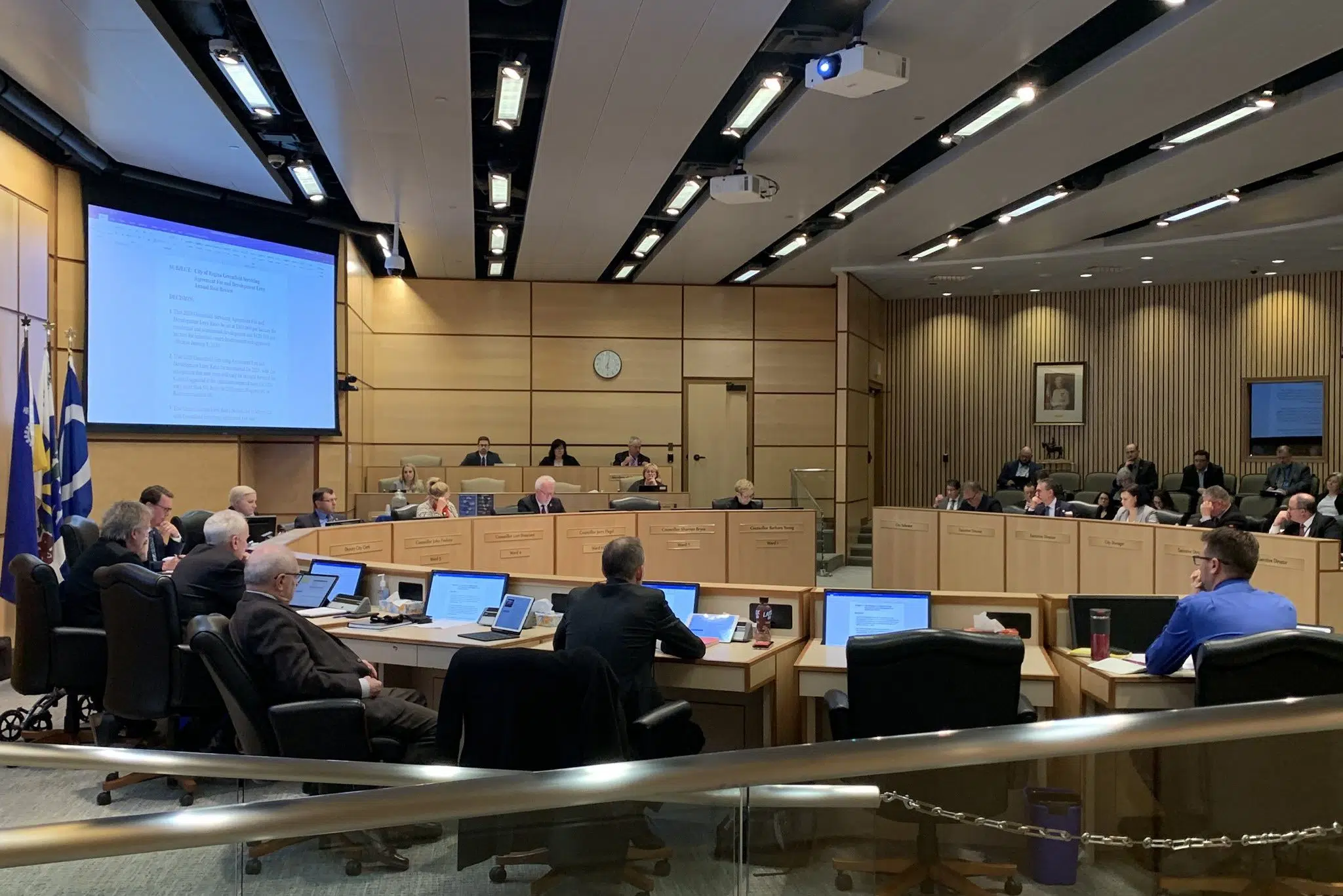If all goes well during the city’s 2020 budget deliberations next month, Regina residents could see four new dog parks in the new year.
On Monday night, council voted down the idea of implementing any unfenced dog areas in neighbourhoods across the city. Instead, councillors approved the consideration of funding the construction of two fenced off-leash dog parks in next year’s budget — one at Mount Pleasant in the northeast and another at Harding Park in the southeast.
Originally, council was set to only discuss the Mount Pleasant location during budget deliberations, but Ward 4 Coun. Lori Bresciani put forward an amendment to add Harding Park to the list.
“We absolutely need more (dog) parks — and the (fenced) parks — faster than what we’re doing,” she told council.
After councillors approved adding two new off-leash areas (one for small dogs and another for all dogs) in the Regent Par 3 Redevelopment Plan back in June, hearing the possibility of more was welcome news to Connie Buchan, the chairperson of Regina’s Off-leash Dog Park User Group.
“That would be a big help,” Buchan said after the meeting. “The current dog parks are overused and really showing a lot of wear and tear. Dispersing out some of those dogs and their owners would really make for a lot better community interactions.”
According to city administration, building an off-leash dog area at Mount Pleasant would cost about $160,000 and one at Harding Park roughly $220,000.
Mayor Michael Fougere noted it might now be tricky financing both parks, and there’s still a chance in next month’s budget deliberations that neither could go through.
“The options are: We find the savings, we add it to the mill rate or we don’t do it,” he said.
Regardless of this added cost being tacked onto the budget, the mayor mentioned he’s still eager to get next year’s mill rate under three per cent; it currently sits at a proposed 3.25 per cent.
Council also voted Monday night in favour of adding $10 onto pet licenses, with the goal to have that money go towards building and maintaining dog parks. However, Fougere said those details still need to be ironed out.
“There may be some difficulties in running that because, typically a fee … it’s for the service itself, not for capital improvements, like new fences, which is what the money would be used for,” he explained. “There might be some friction on how we get to that point.”
City council is set to discuss the funding behind dog parks and adding $10 onto pet licenses during the 2020 budget deliberations Dec. 9.
Report ordered on adding more civilians to board of police commissioners
On Monday night, council also voted in favour of asking city administration to prepare a report in regards to adding more civilian members to the board of police commissioners.
The report is expected to outline the process of expanding the civilian membership. It’s also set to make a number of comparisons with other western Canadian cities’ boards of police commissioners, including: The ratio of citizen members to elected members, how members are appointed and by whom, and the length of a consecutive term a member can serve on the board.
Regina’s board of police commissioners is also to be consulted in the report.
“If you’re going to reform a board — any board, any commission — you should ask them what they think,” said Fougere in support of the consultation.
“I don’t think it’s a reasonable process to make changes without deep consultation with the very agency that you’re going to be changing.”
Currently, there are five civilian members on the board of police commissioners in Regina: The mayor, two city councillors and two non-elected members of the public.
City administration is set to present its report to executive committee in the second quarter of next year.
Lead pipe talks pushed back
Council planned to discuss Fougere’s notice of motion to accelerate the city’s lead pipe replacement plan Monday night, but it was pushed back.
The debate will either be had at a special council meeting in the near future or at next month’s council meeting. As of Monday night, no date was set.
Fougere is asking to speed up the lead pipe replacement program to ensure that all lead service connections are replaced by 2025, which is 10 years faster than the city’s current trajectory.
As of right now, 95 per cent of city-owned water connections are lead-free, leaving about 3,600 lead connections that still need to be replaced.
The need to replace the pipes at an accelerated rate comes after a consortium of journalists across Canada and the United States published an investigation that found Regina was among several Canadian cities that had above-acceptable levels of lead detected in its tap water.











